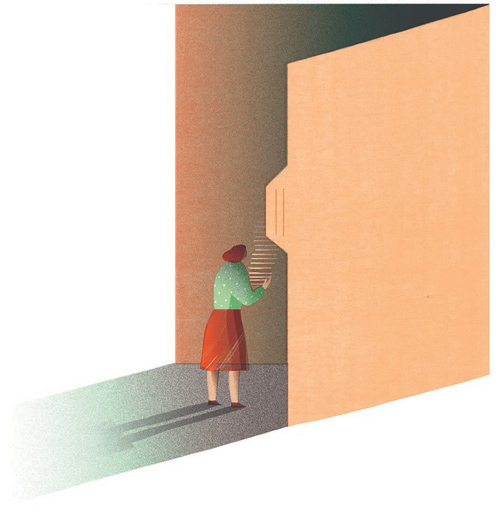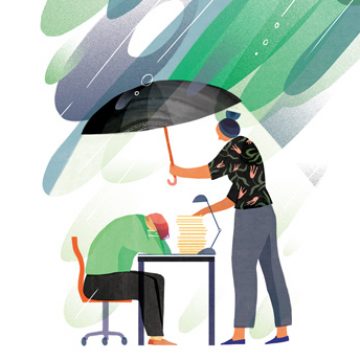 Whether it’s a gruesome criminal trial or a file with a victim the same age as your own child, a lawyer’s casework can trigger vicarious trauma. A form of post-traumatic stress disorder, it occurs when professionals become repositories for other people’s feelings. If you start to feel depressed, hopeless or anxious, take note: you may be struggling with this condition.
Whether it’s a gruesome criminal trial or a file with a victim the same age as your own child, a lawyer’s casework can trigger vicarious trauma. A form of post-traumatic stress disorder, it occurs when professionals become repositories for other people’s feelings. If you start to feel depressed, hopeless or anxious, take note: you may be struggling with this condition.
If you are withdrawing or feeling disconnected from work or home, that’s another warning sign. “You may become more cynical, lose your sense of fairness or justice, or lose faith in the court system,” says Peter Jaffe, a psychologist and professor of education at Western University who has studied vicarious trauma in judges. “It helps if you have friends or family who might point out how you’ve changed. I often hear that people don’t realize what’s happening to them but their partners or colleagues do.”
The first line of defence is peer support. Talk to colleagues you trust about what you’re thinking and feeling. “One judge I know runs with her colleagues at lunch,” says Jaffe, “and they often talk while they’re running.” Beyond that, if you think you need help, seek out a counsellor who understands vicarious trauma. “At the end of the day, lawyers are in the business of hope. When you’ve lost your sense of hope, you’re not going to be very helpful. Looking after yourself means you can help your clients better.”
 This story is part of the “How to Help” feature, from our Spring 2018 Issue.
This story is part of the “How to Help” feature, from our Spring 2018 Issue.
Illustrations by Wenting Li


